Online panel & discussion series (March - June 2022)
Addressing the four content tracks of the RSA CEE conference, four online panel & discussion series were held between March and June 2022. Please see below for more information on topics, speakers and recordings, which are available to RSA members on the RSA Lounge.
These online webinars were organised jointly by the scientific committee, local team, and the scientific board of the conference.
Click here to watch the recordings of the sessions below.
March: CEE as a laboratory of alternative economies
Abstract: Alternative Economies: from informal to Solidarity Economies and Reclaiming Commons in CEE
Central and Eastern Europe experienced unprecedented depth and speed of marketisation in the past three decades. Even if different countries or regions established diverse kinds of market-economies, none have pursued political alternatives to neoliberal marketisation politics. Neoliberalism did not go uncontested, but has rather faced protest and everyday domestication through diversity of non-capitalist socio-economic practices. Such often informal practices have played a crucial role in sustaining social reproduction, and some forms of it are seen as sustainable practices, or as pockets of solidarity and sharing-based economies. Yet, most of what we can see as alternative or non-capitalist practices and forms of organization, be it historical experiences of Socialism or continuous reliance on informal, reciprocal and solidarity based exchanges, are predominantly delegitimized and demonized. This panel aims to first understand how past and present experiences of non-capitalist economic organization forms and localized anti-capitalist struggles shape CEE societies. Second, the panel explores how such experiences are or can be politicized, and mobilized into politically and economically transformative projects.
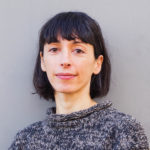
Agnes Gagyi is a sociologist, looking at East European politics and social movements from the perspective of the region’s long-term world-economic integration. She is a researcher at the University of Gothenburg, and a founding member of the Solidarity Economy Center in Budapest. Her recent publications include The Political Economy of Middle Class Politics and the Global Crisis in Eastern Europe. The case of Hungary and Romania and The Political Economy of Eastern Europe 30 years into the ‘Transition’. New Left Perspectives from the Region, co-edited with Ondrej Slacalek.
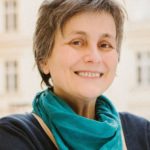
Nadia Johanisova is an associate professor at the Faculty of Social Studies at the Masaryk University, Brno, Czech Republic. She has taught and written about critical economics, degrowth and “different economies”, variously designated as community economies, eco-social enterprises and social solidarity economies, and has researched such projects in the Czech Republic and in the United Kingdom, with particular emphasis on their environmental and degrowth dimensions.
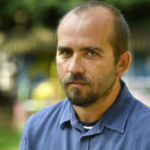
Vedran Horvat is the managing director and head of the Institute for Political Ecology. From 2005 to 2015 he was the country director of the Zagreb office of Heinrich Böll Stiftung, a German green political foundation. Since 2012 he’s been the national correspondent for Green European Journal, and from 2012 to 2017 he was the managing board member of the National Foundation for Civil Society Development. From 1998 to 2004 he worked as a journalist and web-editor in the daily political newspaper Vjesnik. He is a sociologist specialised in human rights, regularly publishing on European politics, civil society development, environmental issues, migration etc.
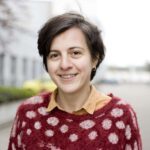
Lela Rekhviashvili is an early career researcher focusing on political-economy and urban geography with a regional expertise in post-socialist Eastern Europe and Eurasia, particularly South Caucasus and Central Asia. She has published widely on informal economic practices, urban transport and mobility, marketization and social embeddedness, contentious action and politics of public space. Her research increasingly focuses on contestations around infrastructure-led development and role of infrastructures in imagining and (re-)claiming socialist and capitalist modernities.
As an invited lecturer at Universities of Jena and Leipzig she teaches on ‘Regional Geography of Post-Soviet Eurasia’ and ‘De/constructing Europe: Multiple perspectives on Europeanisation’. She serves as one of the coordinators of research area ‘Self-Positioning of Eastern Europe in a New World Order’ at Leibniz Science Campus »Eastern Europe – Global Area« (EEGA).
April: The EU and regional policies in CEE
Abstract: European regional policy perspectives between cohesion and polarization
The panel chaired and moderated by Annegret Haase (Helmholtz Centre for Environmental Research – UFZ, Leipzig) will deal with current “continental-regional” challenges of European policy perspectives between cohesion and polarization that have a major impact on the stability and future prospects of the EU and Europe’s wealth, democracy and sustainability. Panellists and audience will discuss current developments in light of policy debates and responses; at the same time, present policy challenges will be embedded into a wider context and questions will be identified that arise in particular for regional studies and space-based analysis. The focus will be on Europe as a whole including the EU but also its neighbouring countries and regions.
Three inputs will address different dimensions of regional policy challenges. They will be given by Oleg Golubchikov (University Cardiff, UK) whose focus will be on old and new regional divides within Europe and the EU including the Brexit and their repercussion in policy debates, decision-making and responses, by Thilo Lang (Leibniz-Institute for Regional Geography, Leipzig, Germany) who will put the focus on the relations and competition between urban centres and peripheries and the question of urban-rural divide as a challenge for regional policy strategies and performance and by Tanja Börzel (FU Berlin, Germany) who will deal with values, norms and visions of Europe and related current challenges for European policies e.g. by the developments in Hungary, Poland but also by debates on societal diversity, racism/xenophobia or migration.

Oleg Golubchikov is reader in human geography at the school of geography and planning at Cardiff University with interests in urban geography and sustainability studies. His research and publications focus on the politics of urban and regional development, the policy and practice of sustainable urbanism, as well as on a spatial critique of energy/low-carbon transitions. He has long-standing research interests in the relationships between urban, social and political transformations under market transition. He also studies the governance of innovation with regard to smart cities, climate-neutral cities, and sustainable urban development. His research informs international policies. He has advised the United Nations and other international organisations on aspects of sustainable cities and sustainable housing.

Thilo Lang is Head of Department and Deputy Director at the Leibniz Institute for Regional Geography (IfL) in Leipzig, Germany. His long-term research interest is about local and regional development in the context of polarisation and peripheralisation in Germany and CEE. More recently, his research focussed on issues of peripheral innovation in national, European and global contexts.

Annegret Haase works as an urban sociologist at the Helmholtz Centre for Environmental Research – UFZ in Leipzig, Germany, at the Department of Urban and Environmental Sociology. She works on sustainable urban transformations and socio-spatial and socio-environmental processes in cities with a focus on the European realm including postsocialist Europe. Her long-term research interests include, among others, discourses on urbanization and urban dynamics, socio-spatial inequalities, social conflicts and social diversity, divides and cohesion in cities as well as urban governance and participation. Together with Dieter Rink, she edited a handbook of urban concepts (Budrich, utb, 2018).
May: Political geographies and rethinking CEE
Roundtable: Political Geographies and Re-Thinking CEE – Historical Experiences and Everyday-Responses in Conflict and Post-Conflict Spaces
Abstract:
Political geographies in CEE are shifting, all the more due to Russia’s current war against Ukraine. What the consequences of the war will be for space-related politics in CEE, which geopolitical alliances and divides will (re-)emerge in the region and how the region’s geopolitical position in the world will be changing, is hard to estimate in view of the dynamic nature of the current developments. Instead of reflecting about current political reasoning about future scenarios, the roundtable zooms in on the experiences in the region in dealing with geopolitical reordering in the context of border-conflicts and wars. Three experts will draw on their current research and present how the international reconstruction after WW II was perceived and co-shaped by local actors, how internationalism was practiced in CEE under the condition of the Soviet Bloc and which every-day practices were established in Ukrainian border regions and conflict zones right before the current war began. These empirically based insights, we believe, will shed light on essential dimensions of the current transformations of the political geographies in the region and the post-conflict challenges ahead: the role of local actors vis-à-vis international relief work, conditions of reactivated internationalism, and the idiosyncratic logics of the people confronted with and exposed to geopolitical decisions. With this perspective we aim to contrast and to enrich the macro-perspectives dominating the debates about the political geographies in CEE.

Dr. Olga Gnydiuk is a postdoctoral fellow in ZARAH: Women’s labour activism in Eastern Europe and transnationally, from the age of empires to the late 20th century at the Central European University (CEU). Her current project focuses on a key dimension of the evolving international politics of women’s work. It explores the relationship between women’s gainful employment and paid and unpaid family work construed by female trade unionists associated with the World Federation of Trade Unions, and trade unionists active in the state-socialist countries, in the period between the 1940s and the 1980s. Olga studied social anthropology at the University of Cambridge and received her Ph.D. in history from the European University Institute (2018). Her dissertation examined the child care and child resettlement policies pursued by the social workers of the United Nations Relief and Rehabilitation Administration and International Refugee Organization for Ukrainian unaccompanied displaced children at the time of post-1945 geopolitical transformations. Before joining CEU, she taught seminars on childhood history at the Humboldt University in Berlin.

Dr. Sabine von Löwis studied Economic and Social Geography at the Technical University of Dresden (TU Dresden) and gained a doctorate at HafenCity University in Hamburg. From 2011 to 2017, she was a postdoctoral researcher at the Centre Marc Bloch, where she was involved in the joint research project Phantomgrenzen in Ostmitteleuropa (Phantom borders in East Central Europe) funded by the German Federal Ministry of Education and Research (BMBF). In December 2017, Sabine von Löwis joined the research team at ZOiS, where she coordinates the research cluster “Conflict Dynamics and Border Regions”.
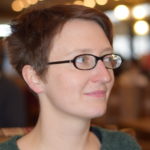
Dr. Justyna Aniceta Turkowska studied history, sociology and political science at the Universities of Warsaw, Berlin and Hannover and completed my PhD at the University of Giessen in 2016. Her PhD thesis on the transnational aspects of the history of medicine in the Eastern borderlands of the German Empire was awarded the Fritz Theodor Epstein Award of the Association of German Historians of Eastern Europe and the Scientific PhD Award of the Ambassador of the Republic of Poland in Berlin. Before starting working at the University of Edinburgh in 2018, she worked as a lecturer at the University of Bonn at the Department of History of Medicine and at the University of Giessen at the Department of Central and Eastern European History. In the summer term of 2021, she was a visiting lecturer at the University of Halle. Her current project analyses the transfer and circulation of technical geological expertise, experts and their activities within the Global East-South solidarity ties and cooperation patterns in the 1960s-1980s. Her research focuses on the history of science and global connections of (Eastern) Europe in the 19th and 20th centuries, emphasising German Empire and European-African entanglement history.
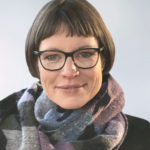
Katja Castryck-Naumann is historian and works as Senior Researcher in the Department “Entanglements and Globalization” at the GWZO Leipzig while she also lectures at Leipzig University. Her research concerns the global history of East Central Europe, in particular the regions’ role in international organizations, the history of regional studies, and she engages in conceptual debates on area research. She edited among others the volumes “Transnational Connections in the History of East Central Europe” (2021) and “In Search of Other Worlds. Essays towards a Cross-Regional History of Area Studies” (2018). She is research coordinator in the Leibniz ScienceCampus “Eastern Europe – Global Area” (EEGA), president of the European Network of World and Global History, editor of the eJournal Connections. A Journal for Historians and Area Specialists and member of the editorial bord of Comparativ. Journal for Global History and Comparative Studies. Currently she prepares a textbook for graduate education which brings Eastern European Studies in dialogue with global history (to be published by Bloomsbury in 2023).
June: CEE Societies and cultures
Abstract: Bridging and dividing Europe – Central Europe, Brexit, and Covid 19
There have been several major disruptions in the European Union and the whole CEE in the last couple of years, creating fears, new and old divides. Already for 10 years, Core Europe experiences problems in convincing Hungary and Poland in respecting the rules of law and respect democracy. After 3 years of suffering on January 2020 Brexit became a fact, which raised fears within the migrants and families in the UK, as well as in continental Europe for the future of the EU project. A little bit after in early 2020 the Covid-19 pandemic hit the whole world and raised voices of solidarity as well as political and societal disrupts in CEE and elsewhere. Bringing these topics together, this panel aims to elaborate on the chances as well as on the menaces and challenges in front of CEE. Are there new or old paths of solidarity possible? Is there a “third way” for Europe and CEE?

Stefan Popov holds a Ph.D. in Philosophy and Social Science from the New School for Social Research, New York (1996) and D.Sc. in Philosophy from Sofia University (2015). Program Director at the Center for Liberal Strategies (1996-2004). Chairman of the Board of Trustees of the Open Society Institute – Sofia (2000-2006). He has had one-year specializations in constitutions and international tribunals (Vienna, 1994), international security regimes (Washington, 1999), constitutional politics (Fribourg, 2003), public policy concepts (Vienna, 2011-2012). Executive Director at RiskMonitor, a think tank. Author of ten books, among them Wittgenstein’s Analytic of the Mystical (Altera, 2008), Obiectum Purum: Introduction to Rene Descartes’s Phenomenology (Literaturen Vestnik, 2015), Public Process, Vol. I and II (Ciela, 2015), Atlantis: Disintegration of Political Bodies (Obsidian, 2016), Descartes and the Mathematization of the World (Altera, 2017), The Life of Empty Phrases. Critique of Policy Metaphors (NBU, 2020), Risk. A Conceptual Framework (NBU, 2022), and a sports book, Modern Ski Technique (NBU, 2019).
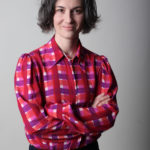
Karolina Wigura is a historian, sociologist and political editor of Kultura Liberalna, Poland’s leading online political and cultural weekly. She is lecturer at Warsaw University’s Institute of Sociology and focuses on the political philosophy of the 20th century and emotions in politics, as well as sociology and ethics of memory, particularly transitional justice, historical guilt, and reconciliation. From 2016 to 2018, she was a co-director of the Polish Programme in St. Antony’s College at University of Oxford. Wigura is currently a Richard von Weizsaecker Fellow at the Robert Bosch Academy in Berlin. “She is the author of The Guilt of Nations: Forgiveness as a Political Strategy (2011) and The Invention of Modern Heart: Philosophical Sources of Contemporary Thinking of Emotions (2019) – both in Polish. Her work has also been published in The Guardian, The New York Times, Neue Zuercher Zeitung, Gazeta Wyborcza, and other periodicals. Wigura studied sociology, philosophy, and political science at University of Warsaw and University of Munich. She received her doctorate and habilitation from University of Warsaw.
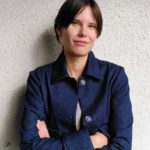
Špela Drnovšek Zorko is a social anthropologist working at the intersections of migration, memory, and global race studies. After obtaining her PhD at SOAS, University of London in 2017, she held a Leverhulme Trust Early Career Fellowship in the Department of Sociology, University of Warwick, where she remains an Honorary Research Fellow. She is presently a JSPS Fellow at Waseda University, Tokyo, working on a project investigating the co-constitution of borders, racialization, and new formulations of East-West relations. She is a member of the Dialoguing Posts and NODE UK-Japan networks and a co-convenor of the BSA Diaspora, Migration and Transnationalism study group, and her research on intergenerational post-Yugoslav narratives and postsocialist migrants’ articulations of race and geopolitical coevalness has appeared in journals including Ethnic and Racial Studies, Comparative Migration Studies, and The Sociological Review.

Lyubomir Pozharliev is a research associate at the Leibniz-Institut für Länderkunde (Leibniz Institute for Regional Geography, IfL) in Leipzig, Germany, within the CoMoDe project. In the last three years, he was a postdoctoral researcher within SPP 1981 Transottomanica, funded by the German Research Association (DFG). He received his doctorate in history and cultural studies (2018) from Justus-Liebig University, Giessen, where he is still working and teaching at the Department of Eastern European History. He holds a BA in Sociology (2009) from the University of Sofia, and MA in Comparative History of Central, Eastern and Southeastern Europe (2012) from Central European University, Budapest, Hungary.
His main interests are in cultural history of infrastructure, technology and mobilities in the long 19th, as well as in 20th century after 1945. Further expertise he offers in theories and history of socialism as well as post-socialism, nationalism and peripheries. He is also working on media research focused on newsreels and historical video testimonies. Pozharliev’s monograph “The Road to Socialism. Transport Infrastructure in Socialist Bulgaria and Yugoslavia (1945–1989)” will be published by Vandenhoeck&Ruprecht this year and will be accessible in hard and online copy. He continues working on his second book with preliminary title “Transcultural Mediators, Strategies and Entangled Modernities: Transportation and Infrastructure in the Imperial Ports of Odessa and Varna in the 19th Century.”